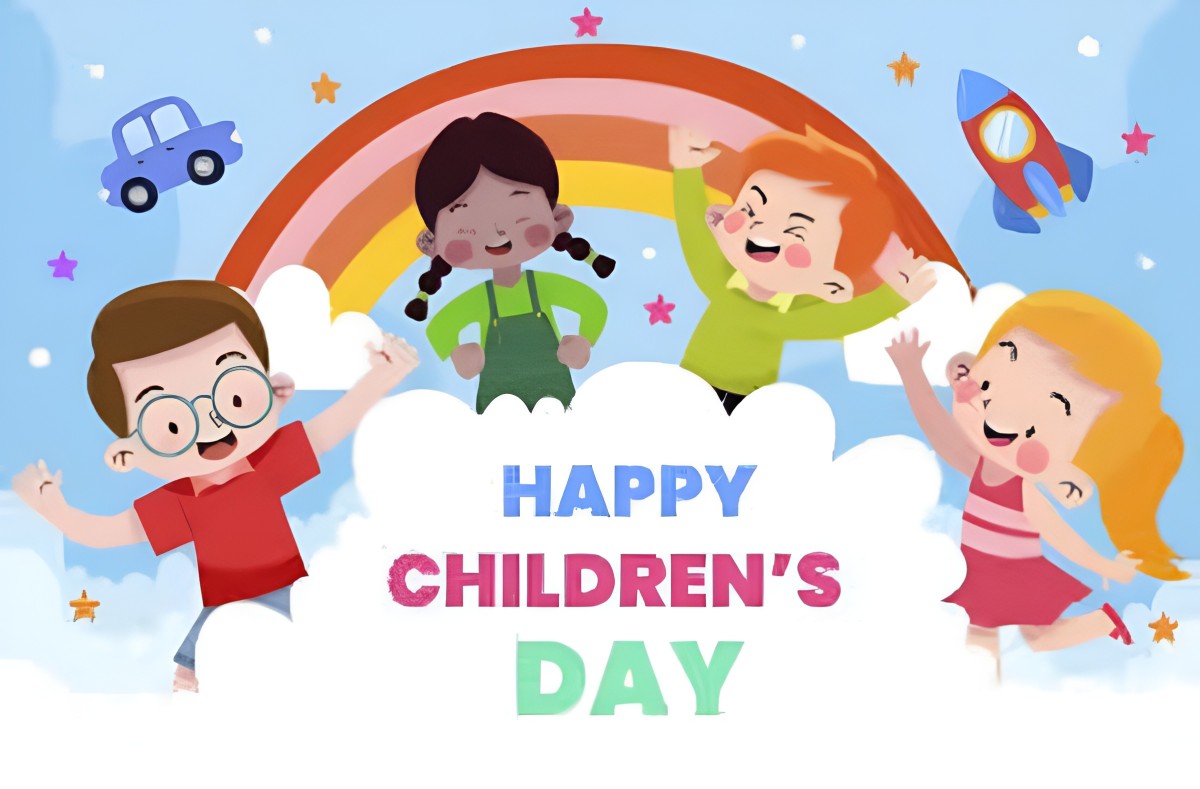Universal Children’s Day, observed every year on 20 November, highlights the importance of protecting children’s rights and building a world where every child can grow, learn, and thrive. The day reminds governments, communities, and individuals that children are not just the future of society—they are active members of it today, deserving dignity, protection, and opportunity.
Also Read: Brazilian Model Larissa Responds to Allegations of Rahul Gandhi’s Vote Chori Connection
Origins of Universal Children’s Day
The world first recognized the need to protect children’s rights in the early 20th century, when wars, poverty, and exploitation exposed how vulnerable children were. The movement gained momentum, and on 20 November 1959, the United Nations General Assembly adopted the Declaration of the Rights of the Child.
This milestone marked the first global commitment to ensuring children receive proper care, education, and protection.
Thirty years later, on 20 November 1989, nations took a stronger step by adopting the Convention on the Rights of the Child (CRC) — now the most widely ratified human rights treaty in history. The CRC sets legally binding responsibilities for governments to safeguard children’s civil, political, social, economic, and cultural rights.
Because both major milestones took place on 20 November, the UN chose this date to celebrate Universal Children’s Day every year.
Core Rights Promoted on Universal Children’s Day
The CRC outlines a full range of rights that every child must enjoy. These include:
1. Right to Survival and Development
Children must receive proper nutrition, healthcare, safe shelter, and education. Societies must create environments where children can reach their full potential.
2. Right to Protection
Children must stay safe from violence, abuse, neglect, and exploitation—whether at home, online, in school, or in workplaces.
3. Right to Participation
Children have the right to express their views on matters affecting them. They must be heard in families, schools, and communities.
4. Right to Education
Every child must have access to quality education without discrimination. Schools must be safe spaces that promote learning and growth.
5. Right to Identity and Equality
Children have the right to a name, nationality, and legal identity. They must never face discrimination based on gender, race, religion, disability, or economic background.
Why Universal Children’s Day Matters Today
Even with global progress, millions of children still face barriers that limit their rights. Universal Children’s Day brings attention to these challenges and pushes the world to take action.
1. Education Gaps Continue
Millions of children remain out of school due to poverty, conflict, or discrimination. Universal Children’s Day encourages nations to strengthen inclusive, equitable education systems.
2. Children Face Violence and Exploitation
Physical abuse, child labor, trafficking, and early marriage continue to harm millions globally. The day serves as a reminder to enforce laws and protect the most vulnerable.
3. Digital Safety Has Become a New Priority
Children growing up in the digital age face cyberbullying, data misuse, and online exploitation. Universal Children’s Day urges countries to create safer online spaces.
4. Climate Change Threatens Child Survival
Rising heat, natural disasters, and pollution affect children more severely than adults. The day calls for child-centered climate policies.
5. Mental Health Needs Are Rising
Stress, academic pressure, and social changes have created mental health challenges for children and adolescents. Universal Children’s Day encourages early support and stigma-free care.
Global and Local Celebrations
Countries mark Universal Children’s Day in different ways — through school programs, awareness campaigns, youth parliaments, community events, and policy announcements. UNICEF collaborates with governments and NGOs to highlight children’s voices and promote initiatives aimed at improving their well-being.
Many nations also “light up” iconic monuments in blue, symbolizing support for children’s rights and hope for a brighter future.
The Global Significance of Universal Children’s Day
Universal Children’s Day acts as a powerful reminder that children’s rights are human rights. It inspires governments to strengthen laws, encourages schools to promote inclusion and respect, and motivates communities to provide safe, nurturing spaces for children.
Most importantly, the day empowers children themselves. When children know their rights, they gain confidence, speak up, and participate in shaping society.
Universal Children’s Day continues to push the world toward a future where every child lives in dignity, enjoys equality, and grows without fear or hardship.
Also Read: Climate Change in 2025: Are We Too Late to Reverse It?










